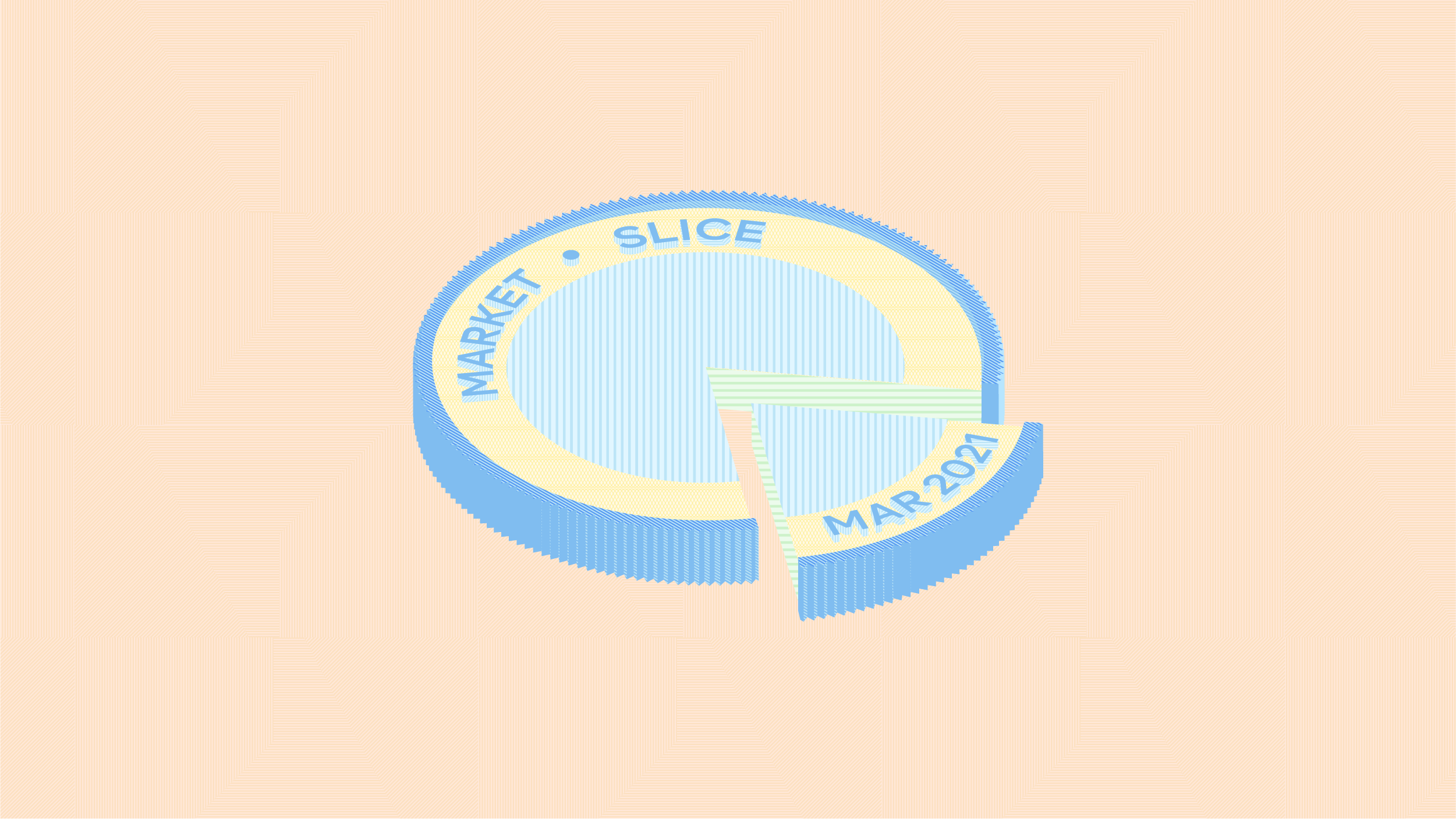
Market slice is a monthly summary of mutual funds on Cowrywise and key money news. This jargon-free report is shared on the 3rd of every month. Share lessons on Mutual Funds in March 2021 using the hashtag: #MarketSlice.
Hiya ??
How old were you when you discovered that the Nigerian Stock Exchange (old name) is owned by private individuals and not the government? Today old? Don’t worry if you fall in that category; I assure you that there are many reading this who just discovered also. There’s more on this if you keep reading.
Mutual Funds in March 2021: The Lift-off ?
The march to recovery for money market funds was sustained last month. Just a while back, in January, their returns hovered around 1% per annum but that picked up in February. Ever since they’ve been on an onward climb. Some suggest that we might see the returns climb back to their glory days of 10%+ per annum.
While it is definitely impossible to predict the future, here are some beautiful facts about money market funds:
- They are low-risk.
- Beginners find them easy to invest with
- They pay out returns quarterly. Cowrywise investors, with money market funds, got their returns on March 31, 2021.
Top Money Market Funds in March 2021
Here’s a quick fact, money market funds invest majorly in treasury bills (T-bills). Hence, their returns are determined majorly by the performances of T-bills. Between January and now, returns on T-bills have increased significantly to grow the returns of some money market funds by 4x! Below are the top money market funds in March ⬇️
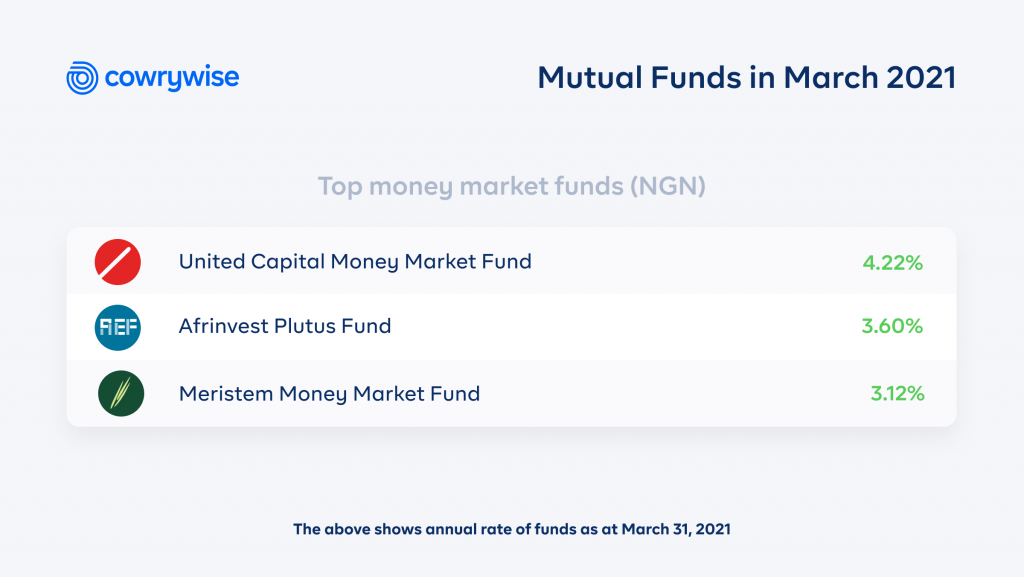
The Top Naira Fixed Income Funds in March 2021
These funds make up the faves of many lists but March wasn’t a rosy month for most of them. Despite this, we noticed that halal funds were still doing great so we spoke to our friends at ARM to explain why. Olasiji Omotayo, one of the senior portfolio managers at ARM Investment Managers, had this to say:
“By nature of the objective, halal funds cannot invest in the regular fixed income products that pay interest. Instead, they are restricted to Sukuk bonds, other alternative investment products and halal equities. That said, Sukuk bonds are usually issued at a slight premium (a higher rate of returns) to their comparable FGN Bonds. Therefore, this allows halal funds to invest at higher rates relative to other fixed-income funds that invest in regular bonds. Also, the fund has exposure to other ethical products that are not part of the traditional asset classes, which explains the outperformance during the period.”
The above explains why the ARM ethical fund and other halal funds came tops in March:
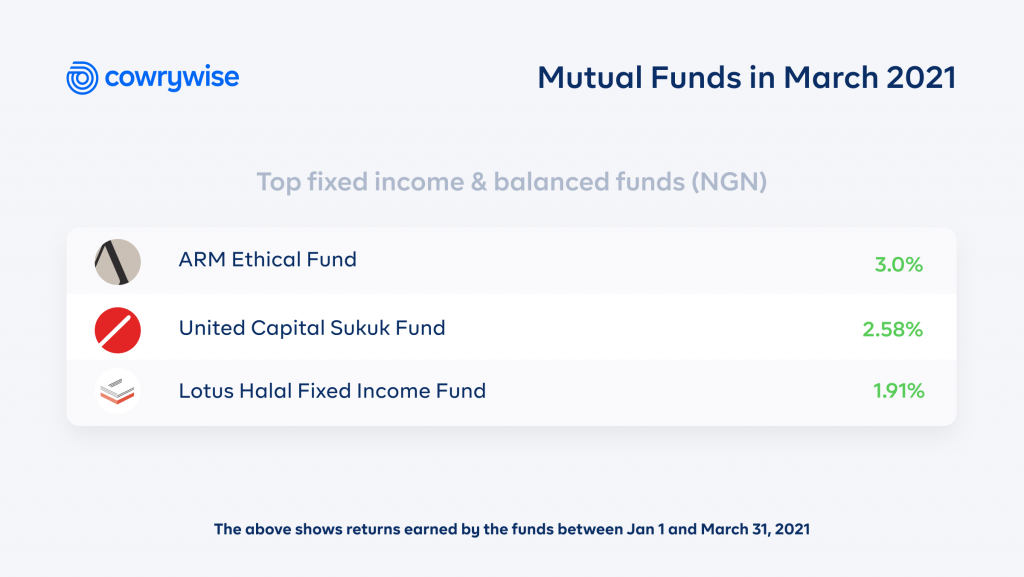
Top Dollar Fixed Income Funds in March 2021
Growth in this region has been quite slow but it still presents itself as a great opportunity because the dollar is a stable currency. Remember, it still takes just $10 to invest in a dollar fund. Here’s how the two dollar funds on Cowrywise performed:
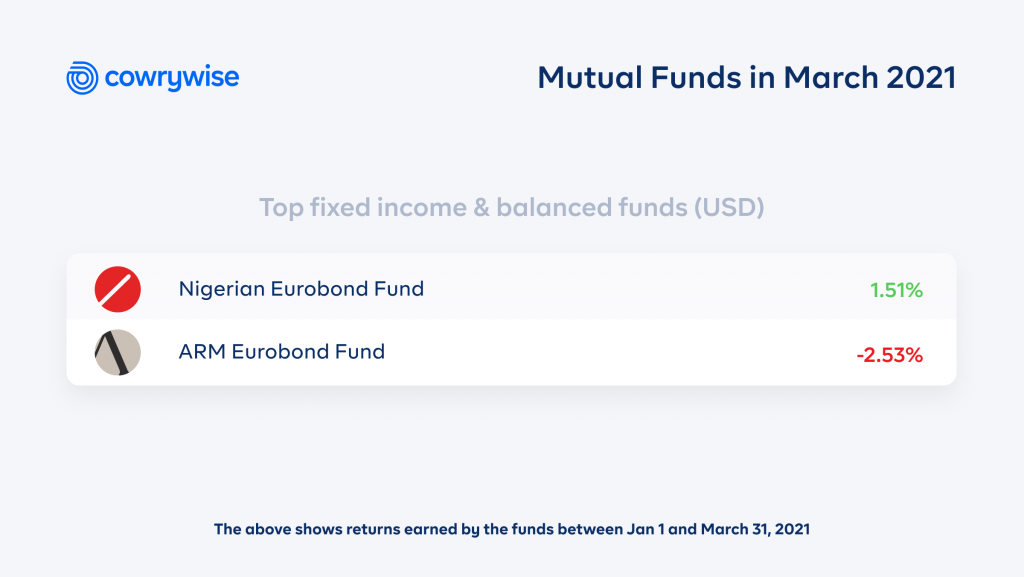
The Biggest Equity Funds in March 2021
Do you remember our 2020 report on mutual funds? We referenced a Bloomberg report on the Nigerian stock market; it described it as the best performing last year based on returns. Over the course of 2021, that momentum seems to have slowed a bit. And as expected, this is shown in the performance of funds that invest in stocks (equities). Here’s how equity funds performed in March 2021:
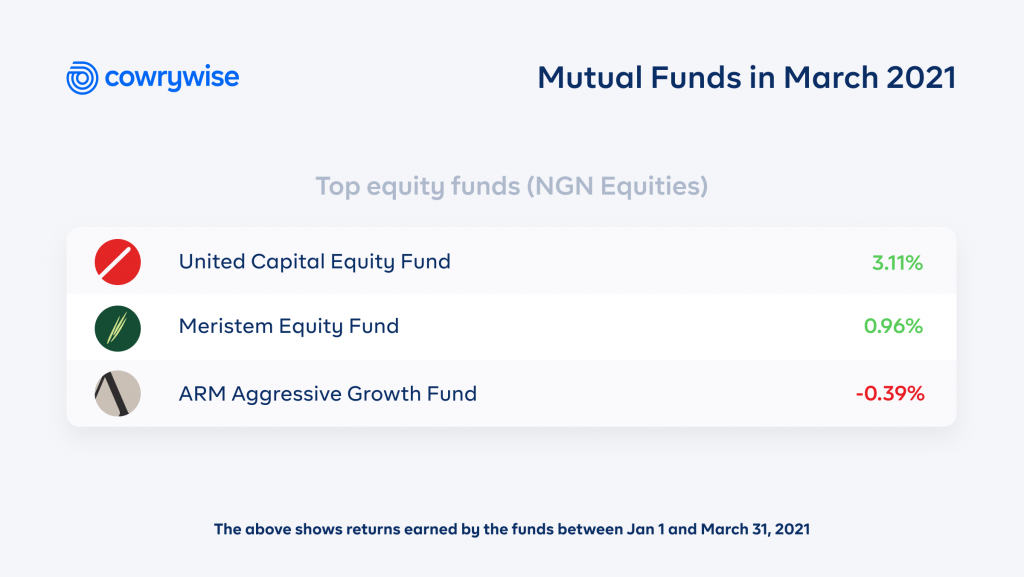
Who Owns the Nigerian Stock Exchange?
Quick answer, not the government. It is owned and managed by private individuals and regulated by the Securities and Exchange Commission. Here are a few fun facts:
- The first president of The Exchange was Sir Louis Phillip Odumegwu Ojukwu, the father of the famous Colonel Ojukwu.
- It is no longer called the Nigerian Stock Exchange but “The Nigerian Exchange”. Why the change? Demutualization.
What does Demutualization of a Stock Exchange Mean?
Right from inception, The Exchange operated as a mutual company. That is, it was funded by members who have their shares listed. This structure came with a number of limitations; particularly growth according to Stears Nigeria.
To ensure they don’t keep missing out on growth, a transition from a mutual company to one owned by public shareholders was necessary. This transition is what is known as demutualization. In essence, you can be a shareholder of The Exchange as a company.
For the purpose of proper structuring, the Nigerian Stock Exchange was added to a holding structure known as the Nigerian Exchange Group (NGX Group). Under this holding structure (we explain this later), we have the following:
- The Nigerian Exchange (NGX)
- The NGX Regulatory Company (Internal regulator for stock trading activities)
- The NGX Real Estate Ltd. (A real estate firm)
A holding company is one that is created to buy and own shares of other companies. So, the NGX Group was created to buy controlling shares in the three new independent companies highlighted above.
? Data Snap of the Month
In 1969, money market mutual funds were established by Henry B.R Brown.

Good day ope, what does it take to that the sukuki Halal investment and what is the minimum amount one can use to start the investment. Thanks
Hi there, you can start with any amount.
Pls I need a customer care line, I have a question to ask, before investing my money on any business